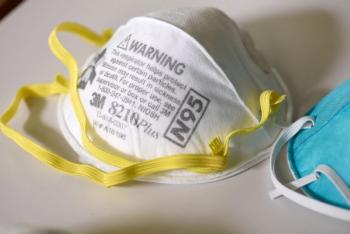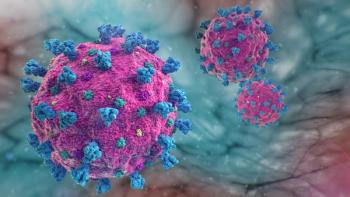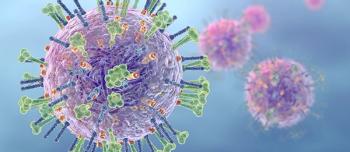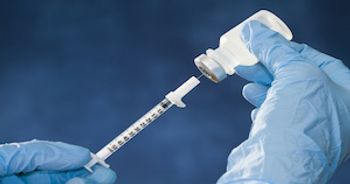
A study showed that pharmacists in the state of Wisconsin are most likely to administer zoster and influenza vaccines to customers.


A study showed that pharmacists in the state of Wisconsin are most likely to administer zoster and influenza vaccines to customers.

The latest update from the CDC incorporates evidence that informs the duration of isolation and precautions recommended to prevent transmission of severe acute respiratory syndrome coronavirus 2 (SARS-CoV-2) to others while limiting unnecessary prolonged isolation and unnecessary use of laboratory testing resources.

Seasonal influenza is usually active from October to May and is caused by A and B strains of the influenza virus.

Prepping for flu season in 2020: why the vaccine is more important than ever.

The findings indicate that front-line health care workers are at high risk for COVID-19 and that many health care workers with the virus may not have typical symptoms of a respiratory infection, according to the study authors.

The frequency of adverse events, such as headaches and nausea, was similar among those who received the drug (22.2%) and those who received placebos (20.5%) with no deaths in either group.

Researchers conducted an online study with 371 participants who viewed a COVID-19 screening session between a hotline agent, chatbot or human, and a user with mild or severe symptoms, according to a press release.

According to the researchers, N95 masks and surgical masks, along with vacuum cleaner filters that can be inserted into filter pockets in cloth masks are the next best options. The vacuum filters reduced infection risk by 83% for a 30-second exposure and 58% for 20-minute exposure.

According to a recent analysis published in the Annals of the American Thoracic Society, Black individuals are twice as likely as White individuals to test positive for COVID-19.

Ensuring equitable distribution of remdesivir in virus hot spots can help increase the capacity of intensive care unites.

Pharmacists must be able to identify populations that are at high risk for influenza complications.

Studying blood samples from critically ill patients at the London Health Sciences Center (LHSC), the researchers identified a unique pattern of 6 molecules that could be used as therapeutic targets to treat the virus, as reported in the Critical Care Explorations journal.

Vitamin C and zinc are among the adjuvant treatments being evaluated for patients with COVID-19 due to their various immune-enhancing properties and possible antiviral effects.

Antibodies isolatied from plasma donated from recovered COVID-19 patients fights the virus that causes COVID-19.

Although flu vaccines have been proven to reduce severe illness, evidence is lacking on the link between flu vaccination and antibiotic prescribing at the population level in the United States, according to the study authors.

Further, although the transmission of influenza and COVID-19 are similar, the incubation period is differentiated, with a range of 1 to 4 days for influenza and a range of 2 to 12 days for COVID-19.

Increasing education and recommendations is a crucial element of increasing maternal vaccination.

The widely available anti-parasitic drug ivermectin is capable of killing COVID-19 within 48 hours in a cell culture, according to a new study.

The new edge-computing platform may expand the arsenal of health surveillance tools used to forecast seasonal flu and other viral respiratory outbreaks, such as COVID-19 or severe acute respiratory syndrome.


Top news from across the health care landscape.

Children aged 0 to 4 years are now the highest CDC has on record at this point in the season, surpassing the rates reported during the second wave of the 2009 H1N1 pandemic.

Annual influenza vaccination is always the best method to prevent flu and serious health complications.

This month's OTC case studies ask about PMS symptoms, using stevia for diabetes, and OTC Tamiflu.

Edina Avdic, PharmD, MBA, BCPS-AQ ID, discusses various recommendations for different patient populations with influenza.